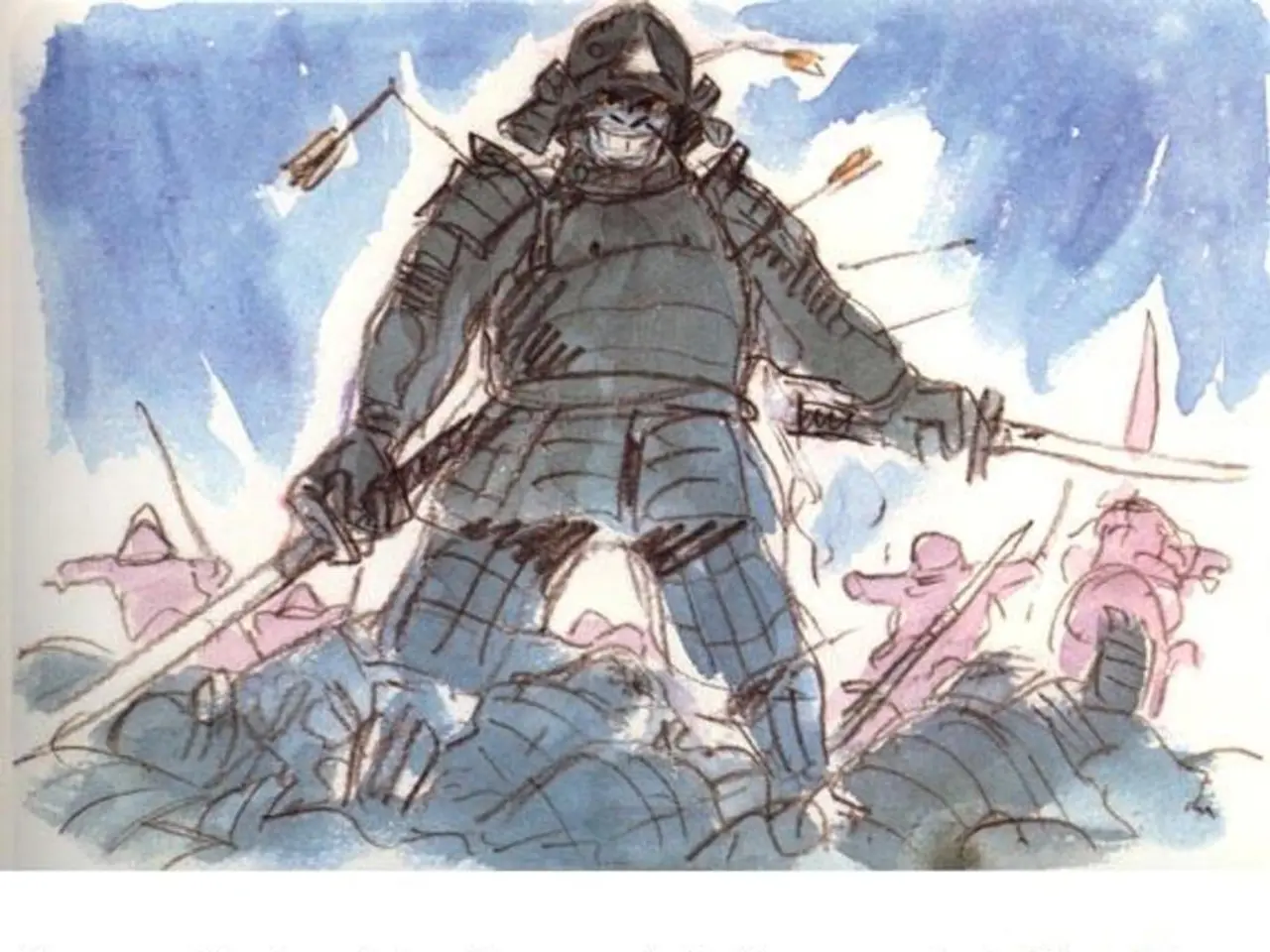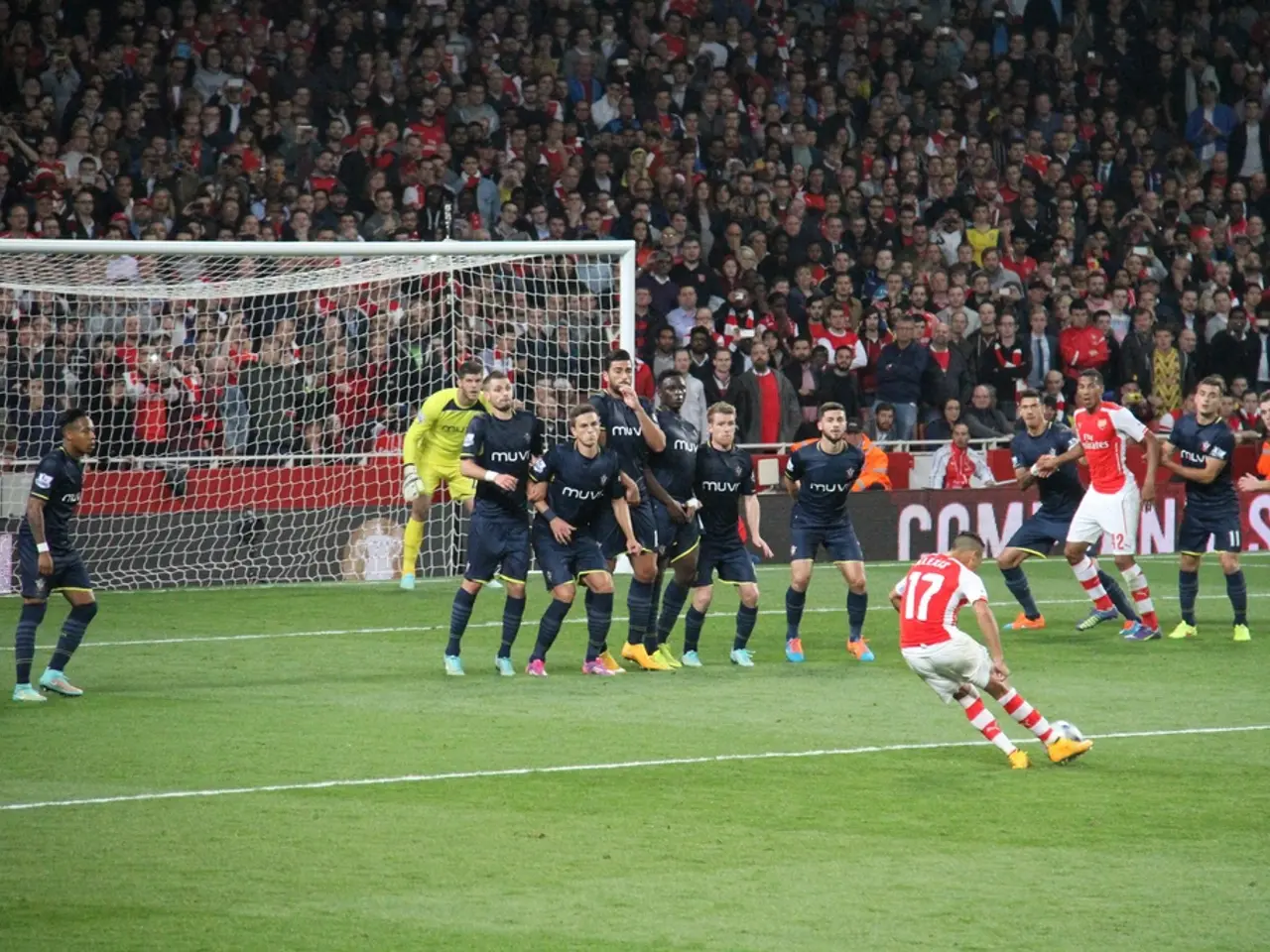Merz's New Agenda: beefing up NATO in the face of Russian Aggression
Renewed Resolve in Action - Strengthening NATO Historically: Merz Advocates for Reinforcement of NATO's Power
Philosophizing about war should be left to great philosophers, but when the threat is right at your doorstep, it becomes a necessity. That's exactly the situation Friedrich Merz finds himself in, as he gears up to ramp up Germany's NATO contribution.
More than just rhetoric, Merz is signaling a new era of German defense policy. He's made it clear that the current Russia is no friend to peace, and it's up to NATO to stand tall against this aggressor.
Merz calls out Russia for endangering the entire Euro-Atlantic area. This realization led him to declare a significant shift in Germany's security policy. "We will invest significantly more in our security in the future," declared Merz, branding this summit as historic.
In his government declaration, Merz made it clear that Germany would take an active role in fortifying NATO and demonstrate strength and reliability within the alliance. "Germany is back on the European and international stage," asserts Merz, showcasing Germany's new determination that's making waves around the globe.
This reemergence has not been without criticism, with the AfD and Left party voicing their concerns in the Bundestag debate. Meanwhile, the Greens have shown general agreement. Britta Haßelmann, Green faction leader, contends that Vladimir Putin poses a threat to the peace and security order in Europe, necessitating NATO to project strength.
In contrast, Soren Pellmann from the Left party labeled planned military spending hikes as a reckless plunge into insanity at the expense of citizens. AfD leader Tino Chrupalla branded Merz as a "Union debt chancellor in red."
Despite the critics, Merz remains resolute, vowing to make the Bundeswehr the most powerful conventional army in Europe. This is a monumental shift from past policies, as Germany moves to align itself more closely with its NATO allies.
Merz's push for increased defense spending is driven by the need for a credible deterrent against potential threats from Russia. Germany has longstanding ties with countries like the Baltic states, but has historically failed to heed their warnings about Russian imperial policies. Merz criticized this neglect, stating, "We have recognized our mistake."
Merz also denied accusations that he's overlooked diplomatic avenues to end the ongoing conflicts in Ukraine and the Middle East. He argues that Putin only understands the language of strength and that peaceful negotiations aren't possible under the current circumstances.
At the upcoming NATO and EU summits, Germany aims to secure the necessary funding for its defense build-up, paving the way for increased unity among NATO allies. With the ongoing crises in the Middle East serving as a backdrop, Merz continues to assert Germany's support for Israel's efforts towards a ceasefire with both Iran and Hamas in the Gaza Strip.
In conclusion, Merz's determination to beef up Germany's defense capabilities forms part of a larger effort to strengthen NATO and respond to the threat of Russian aggression. This newfound proactive stance signals a significant shift in German defense policy, one that recognizes the necessity of a strong defense to ensure peace and stability in a volatile world.
- Trigger: The upcoming NATO and EU summits have set in motion a series of policy changes aimed at enhancing Germany's defense capabilities as well as the collective defense efforts of NATO.
- Key Players: Friedrich Merz, NATO, Russia, Germany, CDU, Determination, SPD, Matthias Miersch, Israel, Ukraine, NATO allies, Partners, NATO summit.
- Controversies: Military spending hikes, criticism from political parties, potential impact on citizens' welfare, diplomatic negotiation strategies, allegations of ignoring warnings from Baltic states.
- Knowledge Insights: Merz aims to double Germany's planned defense expenditures over the next 12 years to effectively meet NATO's target of 5% GDP defense spending. This shift is driven by concerns about potential Russian aggression and the reliability of US military support. Merz has also reversed his previous position on Germany's constitutional debt brake to facilitate the necessary funding for defense build-up.
- The upcoming NATO and EU summits, with the background of crises in the Middle East, will mark a pivotal moment in shaping policy changes aimed at bolstering Germany's defense capabilities and unifying NATO's collective defense efforts.
- Despite the criticism from the Left party and AfD, Merz's resolve to upgrade Germany's defense apparatus mirrors a broader initiative to strengthen NATO and confront the risk of Russian aggression, a move that aligns with its strategic partners' interests.






